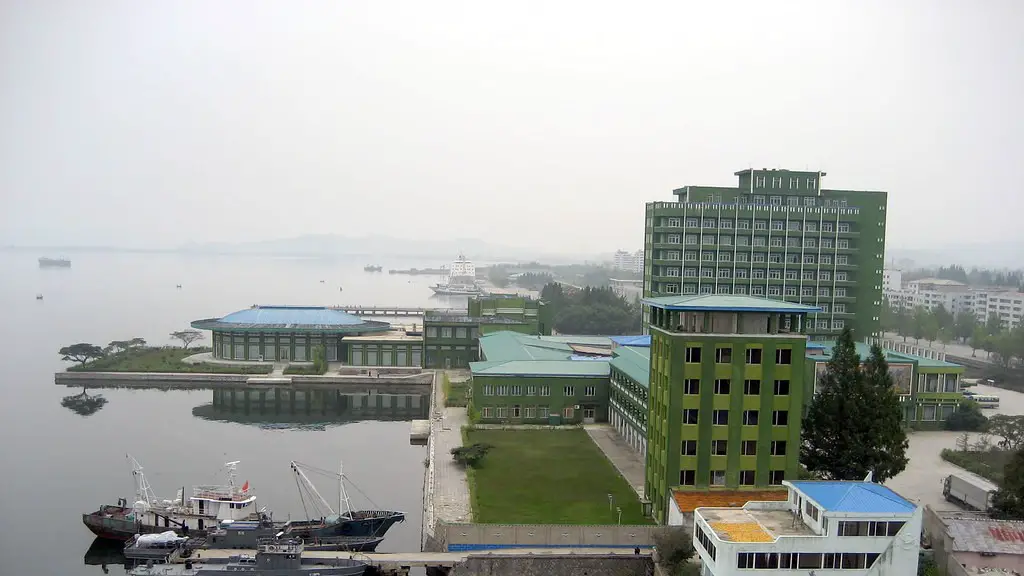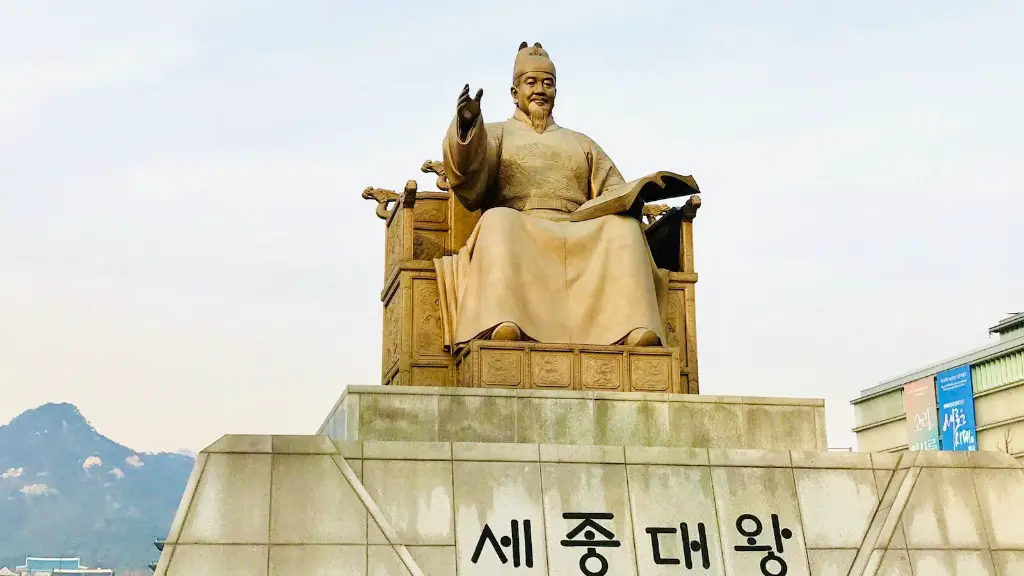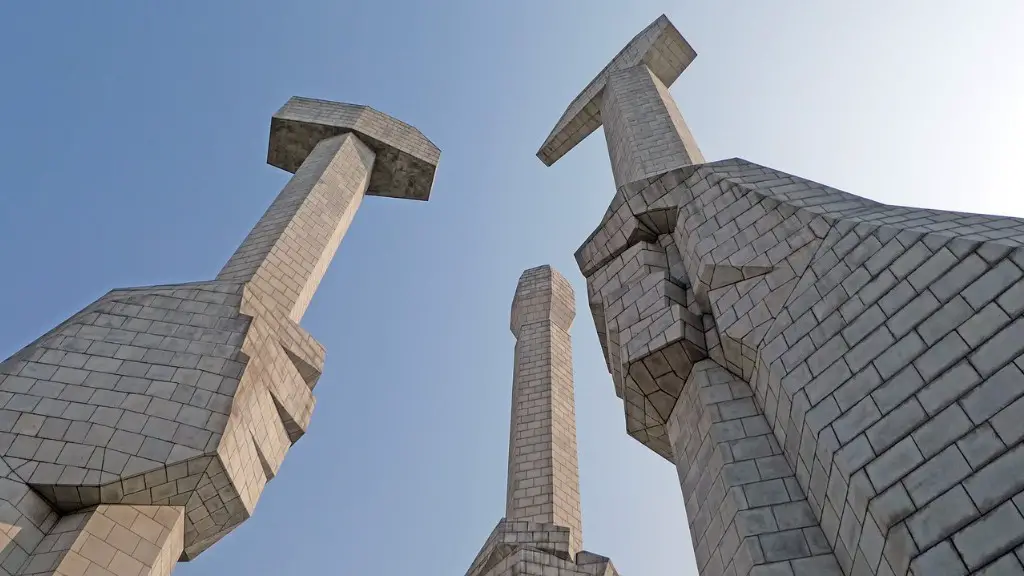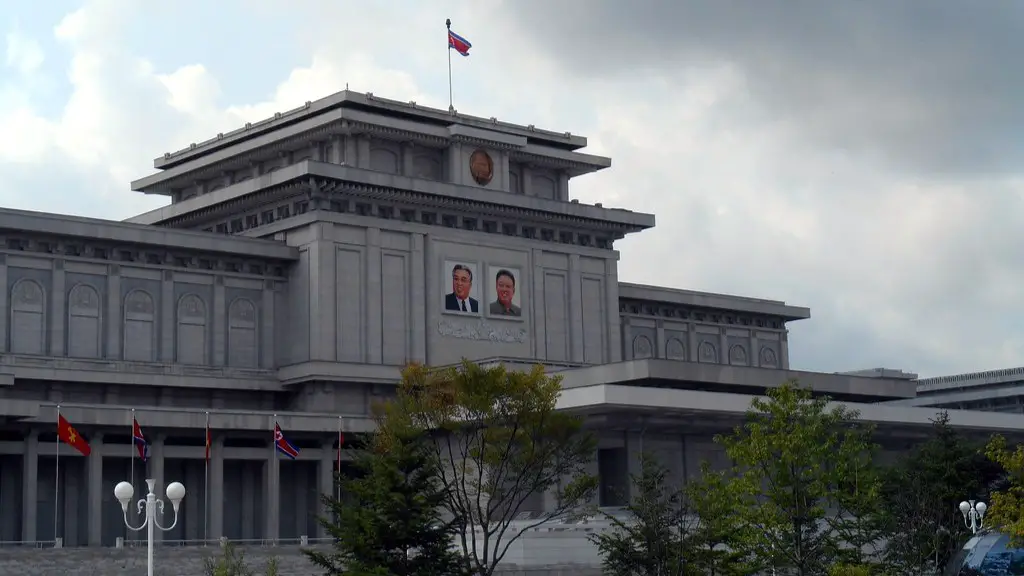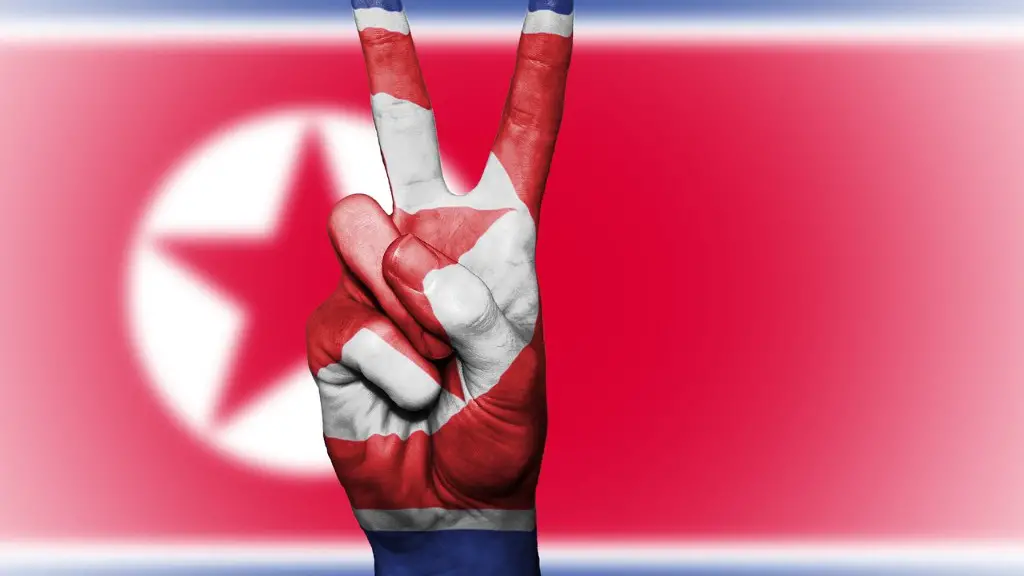The prospect of North Korea going to war is a looming issue in the 21st century. The topic brings forth a range of emotions from fear, to extreme unease, to confusion. To make sense of the situation, it is important to explore the history leading up to the current state of affairs, the motivations of North Korea, the implications of their actions, and the attitudes of international leaders regarding the situation.
Arguably, the largest motivator for North Korea’s actions is their need for security. From the end of the Cold War, the United States has supported sanctions against Pyongyang and individual leaders have identified North Korea as an enemy of the west. For that reason, the North Korean regime has long sought to take measures to bolster their sense of security. In the past, they have done this by developing their own nuclear weapons and by relying heavily on the support given by China.
North Korea’s nuclear ambitions likely began in the late 1950s and early 1960s, with Soviet assistance, and have ebbated and flowed since then. Major steps towards their current nuclear stock pile resulted from the 1993 declaration of their withdrawal from the Nuclear Non-Proliferation Treaty and in 2003, the development and testing of the Taepo Dong-2 missile. This security motivation drove the decision to aggressively pursue a nuclear program, while also using their nuclear capabilities as a bargaining chip to gain favor with other countries in the international community.
North Korea has a long history of issuing both aggressive and belligerent threats toward South Korea and the West. These threats, both public and private, often include promises of war, making it difficult to both decipher North Korea’s intentions and understand the measure to which they truly pose a threat. In recent years, North Korea has increased the frequency and intensity of their threats, mostly under the “Great Successor”, Kim Jong-un. Although many of the threats are issued in response to certain actions by the United States and its allies, it is often difficult to assign direct causation.
From an international perspective, there is an alarming consensus that North Korea is indeed a threat. The United Nations has declared many economic sanctions on North Korea due to their nuclear weapons tests, such as banning certain exports, limiting imports, and specific asset freezes. Ultimately, however, the international community is in agreement that the best way to avoid war is through diplomacy. In this sense, American President-elect Joe Biden and South Korean President Moon Jae-in have both said that they are open to diplomatic solutions and that they are committed to both peaceful and secure peninsula.
The political implications of a North Korean war could be enormous. It is clear to many experts in the field that war, under any circumstance, will ultimately prove more costly than taking a diplomatic approach, due to the widespread destruction and potential loss of life such a conflict would cause. Were a war to occur, the consequences would be far-reaching, having the potential to destabilize the region and disrupt global economies. North Korea’s nuclear weapons stockpile and their historically bad relations with the West put the country’s neighbors and the entire world at risk.
At this point, it is difficult to predict whether or not North Korea will go to war. The country’s leader could either maintain the tensions in the area’s geopolitical climate or take a different approach and seek a long-term solution that would benefit the entire region. It all hinges on the actions and policies of the new administration in Pyongyang, which is currently unclear. To that effect, the future of war or peace with North Korea will depend on their willingness to pursue diplomatic solutions and international cooperation.
Consequences of a War with North Korea
The potential consequences of a war with North Korea are numerous and would likely have great implications in both regional and global affairs. In the event of a conflict, it is likely that the human cost would be high and the effects long-lasting. Such a war would likely require the mobilization of vast military resources and would likely result in considerable civilian casualties. South Korea in particular would be at great risk of attack, due to both its proximity to North Korea and the larger number of citizens it possesses. Moreover, due to the international sanctions imposed on North Korea, the country does not possess a large, modernized army and would instead rely upon its nuclear weapons for offensive action. Thus, the greatest risk of a war would likely be from this type of attack by either North Korea or a major power supporting them.
In addition, the economic and political implications of war could be catastrophic. In particular, access to energy and other vital resources in the region could be significantly hampered. Trade and tourism would almost certainly be disrupted and international financial markets could crash. International relationships between certain states could become strained, if one or more become involved in a conflict. Ultimately, a war with North Korea would almost certainly result in destabilization and a major shift in the geopolitical landscape of the region.
Finally, in the aftermath of such a conflict, the path to peace and stability would not be an easy one. Even if North Korea desires to pursue a more diplomatic approach, a post-conflict North Korea would likely be at the mercy of the international community. All of their previous agreements and agreements of trust could be manipulated and reconstructed in a way that suits the political agenda of the victors. This means that, even if the war is averted, North Korea would likely be unable to gain the upper hand in this instance.
China’s Perspective on War with North Korea
China is a major player in the current crisis involving North Korea and will have to decide how it will choose to handle the situation. China is North Korea’s closest ally, and has in the past provided it with economic and military assistance. Moreover, China has also been a consistent mediator in the Korean Peninsula disputes and remains an influential actor in regional and global affairs. As such, Beijing’s stance on a potential war between North Korea and the West will be a key factor in determining what course of action is taken.
China’s primary concern is that a war between North Korea and the West would have destabilizing effects on the region and the world. This is particularly concerning for China due to its geographical proximity to the Korean Peninsula and its focus on maintaining global stability. In the event of a conflict, it is likely that China will side with North Korea. However, it is still possible that China could try to remain neutral or even attempt to broker a truce between the two sides.
From a political perspective, it is likely that China will use the current crisis to gain more influence in the region and global affairs. It may use this opportunity to push forward its One Belt One Road initiative or to improve its relations with both North Korea and the West. Additionally, China may attempt to use the situation as an opportunity to renegotiate the terms of its own trade deals with the West. All in all, China is likely to take more of a wait-and-see approach in order to determine how it will ultimately proceed.
Ultimately, China is likely to side with North Korea in the event of a war. This is due to the fact that China does not want the instability such a conflict could cause and would prefer to maintain the status quo. However, China is also faced with the challenge of having to maintain its relationships with both North Korea and the West and will have to find a way to balance these factors in order to remain a major player in the crisis.
United States and Allies’ Response
The involvement of the United States and other allies in the current crisis between North Korea and the West has been a source of significant debate, as these nations have a vested interest in the outcome of the situation. In this regard, the United States has taken the lead on negotiations between the two sides and has employed the use of sanctions and other methods in an attempt to pressure North Korea into compliance.
At present, the US appears to be at an impasse with North Korea, and any move towards war is likely to be met with strong opposition from the US and its allies. In this regard, the US and its allies have underscored the need for diplomacy and have made it clear that they will not countenance the use of violence as a means of resolving disputes.
The US and its allies have also united to enforce sanctions against North Korea and have threatened further economic sanctions should North Korea continue to defy international law. Additionally, the US and its allies have also taken steps to strengthen their military presence in the region, as a means of deterring North Korea from pursuing hostilities. However, the US and its allies have also stressed that their preference is for a peaceful resolution to the crisis, and any attempts at military conflict are likely to be met with swift and decisive opposition.
Ultimately, any decision by North Korea to pursue a war with the West will be met with extreme opposition from the US and its allies. This position is likely to remain unchanged regardless of any positions taken by China or other regional actors. As such, North Korea is likely to face a unified front should it choose to pursue a military solution.
Effect of North Korean Posture on the Region
The prospect of a war with North Korea has cast a long shadow on the region, creating a heightened level of fear and tension. In this regard, North Korea’s willingness to threaten and make good on those threats has had a negative effect, causing other nations in the region to become increasingly concerned about their security and stability.
The psychological effect of North Korea’s posturing has been particularly significant, with many of its neighbors concerned that the situation could reach a boiling point and escalate into war. This has created an environment of insecurity, with several countries in the region bolstering their militaries and claiming to have the ability to take on North Korea should it attack.
Moreover, the economic implications of a potential war have also been felt throughout the region. Many of North Korea’s neighbors are heavily dependent on trade with the North and any disruption to this system would be devastating. This has caused North Korea’s neighbors to begin to de-emphasize trade with North Korea, while looking to external nations to provide essential goods and services.
The psychological and economic impacts of North Korea’s posture have resulted in a shift in the region’s geopolitical landscape, with some countries seeking to strengthen their alliances and others considering new trade partners. The climate of insecurity also has the potential to lead to state-level conflicts, further exacerbating the tensions in the region.
International Aviation Impact
The North Korean crisis has had a dramatic impact on international aviation, particularly in the region. As North Korea’s rhetoric has increased and its nuclear missile program has continued to progress, many international and regional airlines have been forced to alter their routes and schedules in order to avoid potential conflict. This has had a significant impact on the aviation industry, as flights to and from North Korea have been cancelled and other regional flights have been rerouted or delayed.
Furthermore, North Korean airspace has been regularly subject to international sanctions and is also a high-risk area for airplane hijacking. In addition, heavy fighter jets and other military aircraft have been regularly entering North Korea’s airspace, creating an additional layer of risk for civilian aircraft. Thus,
